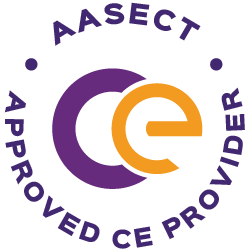Whether you’re a sex coach or a sex coach in training, working without a boss and a time clock can make it hard to achieve a good work life balance. When your multiple tasks and roles add up, it can feel overwhelming to try to juggle it all. Even if studying or sex coaching were the only things on your plate, there’s a lot to do, and most of us have plenty of other things that also need our attention. It’s important to discover a way to achieve a healthy work life balance, so you can actually accomplish your career and lifestyle goals.
The balls you’re juggling might include: parenting, working part-time, full-time, or multiple jobs, caring for loved ones, plus housework, cooking, shopping, self-care, friendships, dating or partner relationships, and more. If you add in life circumstances that can throw us off (pregnancy, a new baby, illness, a death in the family, A PANDEMIC, kids at home for the summer, your car breaking down, etc. ) it can feel impossible to get through your studies, or to make time for the important business items you need to accomplish in order to get clients into your practice.
All of those are valid, understandable, and important. But because they’re all necessary, it often feels like they’re vying for your attention at the same time. So how can you prioritize your sex coach studies or your coaching practice for a good work life balance?
Give Yourself Permission to Prioritize Your Career for Work Life Balance
Start like you would with a coaching client—with permission. Give yourself permission to not be perfect and to keep going anyway. You might be stuck in some all-or-nothing thinking, believing that if you don’t get everything done, or if you’re not progressing on your original schedule, then it’s all a waste, which can lead you to give up for the week (or month, or even more).
It’s like when you’re on some type of healthy eating plan, and one day you eat a brownie, and now you’ve ditched the entire plan and you’re eating a whole bag of chips and three more brownies because you’ve already messed it up, so what’s the point in even trying now?
But if we can give ourselves permission to have that one brownie and remind ourselves how easy it is to return to our eating plan by not over-indulging, we can get back on track.
Likewise, if you’ve gotten off task or off schedule, you can make progress by completing one small task. Often that can give you the confidence to start you back on track. The more that you can keep going without overindulging in guilt for what you have not yet accomplished, the better you’ll do.
Sometimes, to achieve a work life balance, we also need to give ourselves permission to value and prioritize our work as sex coaches. Your studies probably aren’t calling for your attention in the same way as children arguing in the living room, your car’s nearly-empty gas tank, the friend calling you in a crisis, clocking into your current job, or even the dishes piled in the sink. It’s easy to put your studies and sex coaching career on the backburner with so many other things shouting for your time. What kind of permission slip do you need to write yourself in order to prioritize your studies or your sex coaching practice?
Most (or maybe all) of us can’t really “do it all” and do everything well all the time. Sometimes we have to “drop” or gently set down a couple of other “balls” (or tasks, or expectations) for a bit in order to stay focused. It’s okay to put those balls down—you can pick them back up later. Maybe you need to delegate some tasks or ask for help with some things. Maybe you can create more space in your day by cutting down your time on something else, like perhaps you and a roommate could take turns cooking. Maybe your partner could take over laundry. Perhaps a friend or family member could take the kids every other Saturday. Maybe you can do 15-20 minutes of reading while on your lunch break at work sometimes, or you could listen to a webinar while you’re on a walk or driving.
No matter what other things are calling for your attention, there are probably ways to gain some extra time or energy for your (future or present) sex coaching career. Sometimes what holds us back is feeling unsure if our dreams are worthy of the time and discipline it takes to manifest them. It can be hard to acknowledge for ourselves how crucial it is to make time for our own needs, including creating the career and lifestyle of our dreams.
Sometimes we have to bring to the forefront of our minds how much of an investment our training and business development is. We are investing in ourselves and our future careers. We have to give ourselves permission to focus on this, to believe that the investment is worthwhile, that we are completely worth investing in. If this is the case, try writing yourself a “permission slip” or reminder and post it somewhere you’ll see it.
Achieving Work Life Balance by Meeting Our Own Expectations

Photo by Vlada Karpovich from Pexels
Finding balance between our work and our personal obligations may also require us to examine and revise how we manage and meet expectations. It can help to learn about the way you tend to respond to expectations. This can help you figure out how to best motivate yourself and what kind of accountability system works best for you.
Gretchen Rubin has developed a theory that explains four different tendencies or responses to both internal and external expectations. You can take her free quiz for yourself and get some insight about your results here: https://quiz.gretchenrubin.com/
In a nutshell, though, she labels four kinds of tendencies: upholders, obligers, questioners, and rebels. People who tend to honor both internal and external expectations fall under the label “upholder.” If you’re an upholder, you probably don’t need a ton of help or motivation in meeting expectations of any kind—but few people are upholders. Where upholders run into trouble is, when expectations aren’t clear, or if they have to change plans quickly. Deciding on a solid path and sticking to it serves upholders well.
Much more common are people whose primary tendency can be labeled “obliger.” If you find it easy to meet everyone else’s expectations, but not your own, this is probably your tendency. Outside accountability will likely be your most helpful tactic. About 41% of people who have taken the quiz are obligers, so you’re in good company—and perhaps you can make an accountability plan with a fellow obliger to help each other out in finding a good work life balance.
“Questioners” are the next largest group. People with this tendency habitually question expectations, and usually only meet them if the expectations make sense to them. So it might seem like they meet both inner and outer expectations, but they only meet other people’s expectations if the expectation is sufficiently justified in their minds.
If you have a questioner tendency, you might get stuck in your studies if you’re not fully convinced of the importance of doing it now, or if you’re not sure of the best way of going about your studies. You might get lost trying to research the best system to study instead of diving in and doing it, for example. It could help to just choose one to try, track it, and see how it goes for a period of time. Questioners also benefit from staying clear about why they’re doing something.
The last and smallest group are labeled “rebels.” People with rebel tendencies resist expectations from others and also from themselves. They need to feel the freedom to choose what they want to do. If it feels like an obligation, even if it’s for their own benefit, it’s harder for them to act. If you have rebel tendencies, instead of an accountability plan, it’ll probably be more helpful to really focus on how your identity and values match with your actions. For example, reminding yourself that you don’t have to study today, but you’re going to study today, because you are a future sex coach; you chose this unique career path, so of course you’re going to see it through.
No matter what your tendency is, regardless of what aspect of studying or building your coaching practice feels like a struggle, be kind to yourself. Everyone struggles with these things some of the time. Ask for help if you need it, work in manageable chunks that build your confidence, and keep going.
To sum up, the first step to achieving work life balance is to find ways to give yourself permission to prioritize your career, and then use that permission to carve out time to complete your studies or your next business-building task. Your next step is to discover how you tend to respond to expectations and obligations and come up with effective ways of working with that tendency to ensure you actually achieve your goals.
When we honor our goals and desires, we tend to set and enforce better boundaries around the time necessary to work on our business. When we give ourselves permission to focus on our goals, that empowers us to set those boundaries and to reprioritize all our obligations, which allows us to find that optimum work life balance. Once you’ve done that, you’ll be well on your way to the life and sex coaching career you have longed for.
Curious about training to become a Certified Sex Coach™? Join the next live Info Session to meet the SCU team and participate in a live Q&A!







